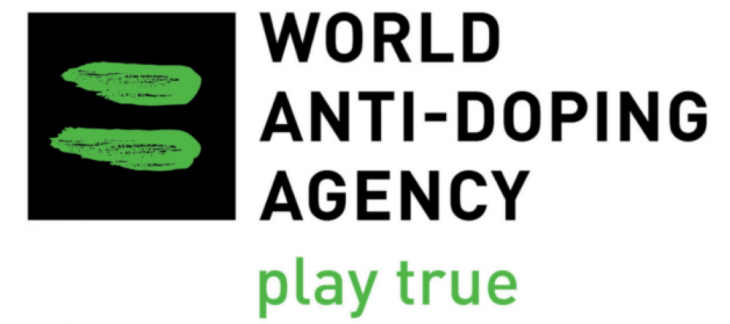Doping
03.08.2022


Julia Plesovskikh
Anti-doping control system. Who takes charge of it?

-
Members of the discussion:
-
Last reply:
Throughout the history of amateur and professional sports, athletes have used drugs to improve their physical condition. But over time, these actions began to be stopped more and more often, and violators — to be punished. An important question arises: who comes up with anti-doping rules, and who controls the actions of athletes in this area?
There is a clear hierarchy in the modern anti-doping structure. The main players in the fight against doping are the World Anti-Doping Agency (WADA), the International Testing Agency (ITA), governments, the sports community — the International Olympic Committee (IOC), the International Paralympic Committee (IPC), International Federations (IF), National Federations (NF), National Anti-Doping Organizations (NADOs), accredited laboratories, sports dispute resolution authorities, Court of Arbitration for Sport in Lausanne.
WADA is the independent organization that coordinates worldwide anti-doping activities. WADA is developing an anti-doping strategy, i.e. World Anti-Doping Code, international standards, sponsors anti-doping research, accredits laboratories, enforces the Code, promotes anti-doping education, cooperates with law enforcement agencies, facilitates the exchange of experience between signatories, and assists in the development of national anti-doping programs. Thus, the IOC has transferred the main functions of combating doping in sports to WADA, while itself remains the leading body in this area only during the Olympic Games.
The International Testing Agency is also an independent organization in the fight against doping. This organization was established in 2018 at the initiative of WADA and the IOC. It is the ITA that is responsible for checking doping samples of athletes and detecting violations, as well as managing anti-doping programs in International Federations.
The IFs have retained a leading role in the implementation of anti-doping policy in their sport, but they must act in full compliance with the anti-doping program (documents) developed by WADA.
The role of governments is that they undertake to take all necessary legislative measures to create conditions for the implementation of the national anti-doping program. Such obligations are enshrined in the International Convention against Doping in Sport and the Council of Europe (CE) Convention against Doping in Sport.
NADOs are directly involved in the implementation of the anti-doping program: they develop national anti-doping rules, conduct doping control, develop and implement information and educational programs.
WADA-accredited anti-doping laboratories are an integral part of the anti-doping system. Doping samples can only be analyzed in these laboratories. As of December 2017, there are 32 accredited laboratories. There are 2 accredited laboratories in the USA, Spain and Germany. Laboratories are constantly audited by WADA, and if their activities do not comply with established standards, then they are suspended until the discrepancies are corrected. In exceptional cases, accreditation may be cancelled.
CAS and national dispute resolution authorities make decisions regarding the imposition of sanctions on athletes and athlete support personnel, and consider appeals against decisions of lower courts. Each country should have a system in place to ensure fair hearings and the possibility of appealing a decision of the first instance to a higher one.
The activities of these organizations are based on documents ratified by most countries of the world. Some of these are the Convention against Doping adopted by the Council of Europe in 1989 and the International Convention against Doping in Sport adopted by the UN in 2005. Both conventions are fundamental in the anti-doping fight; the entire anti-doping system is built on them.
Thus, the world anti-doping system has a clear structure and hierarchy. It remains only to ask the question: how effective is this system in the fight against doping? Does the proposed theory work in practice? We still observe a large number of anti-doping violations in sports, we see that many athletes are not aware of the nuances of the proposed system. Coaches and leaders force athletes to take drugs around the rules, going to various frauds. One can only hope that this structure is not a big bureaucratic machine, but a system that really aims for a clean and fair sport.
There is a clear hierarchy in the modern anti-doping structure. The main players in the fight against doping are the World Anti-Doping Agency (WADA), the International Testing Agency (ITA), governments, the sports community — the International Olympic Committee (IOC), the International Paralympic Committee (IPC), International Federations (IF), National Federations (NF), National Anti-Doping Organizations (NADOs), accredited laboratories, sports dispute resolution authorities, Court of Arbitration for Sport in Lausanne.
WADA is the independent organization that coordinates worldwide anti-doping activities. WADA is developing an anti-doping strategy, i.e. World Anti-Doping Code, international standards, sponsors anti-doping research, accredits laboratories, enforces the Code, promotes anti-doping education, cooperates with law enforcement agencies, facilitates the exchange of experience between signatories, and assists in the development of national anti-doping programs. Thus, the IOC has transferred the main functions of combating doping in sports to WADA, while itself remains the leading body in this area only during the Olympic Games.
The International Testing Agency is also an independent organization in the fight against doping. This organization was established in 2018 at the initiative of WADA and the IOC. It is the ITA that is responsible for checking doping samples of athletes and detecting violations, as well as managing anti-doping programs in International Federations.
The IFs have retained a leading role in the implementation of anti-doping policy in their sport, but they must act in full compliance with the anti-doping program (documents) developed by WADA.
The role of governments is that they undertake to take all necessary legislative measures to create conditions for the implementation of the national anti-doping program. Such obligations are enshrined in the International Convention against Doping in Sport and the Council of Europe (CE) Convention against Doping in Sport.
NADOs are directly involved in the implementation of the anti-doping program: they develop national anti-doping rules, conduct doping control, develop and implement information and educational programs.
WADA-accredited anti-doping laboratories are an integral part of the anti-doping system. Doping samples can only be analyzed in these laboratories. As of December 2017, there are 32 accredited laboratories. There are 2 accredited laboratories in the USA, Spain and Germany. Laboratories are constantly audited by WADA, and if their activities do not comply with established standards, then they are suspended until the discrepancies are corrected. In exceptional cases, accreditation may be cancelled.
CAS and national dispute resolution authorities make decisions regarding the imposition of sanctions on athletes and athlete support personnel, and consider appeals against decisions of lower courts. Each country should have a system in place to ensure fair hearings and the possibility of appealing a decision of the first instance to a higher one.
The activities of these organizations are based on documents ratified by most countries of the world. Some of these are the Convention against Doping adopted by the Council of Europe in 1989 and the International Convention against Doping in Sport adopted by the UN in 2005. Both conventions are fundamental in the anti-doping fight; the entire anti-doping system is built on them.
Thus, the world anti-doping system has a clear structure and hierarchy. It remains only to ask the question: how effective is this system in the fight against doping? Does the proposed theory work in practice? We still observe a large number of anti-doping violations in sports, we see that many athletes are not aware of the nuances of the proposed system. Coaches and leaders force athletes to take drugs around the rules, going to various frauds. One can only hope that this structure is not a big bureaucratic machine, but a system that really aims for a clean and fair sport.
Discussion
More on the topic

